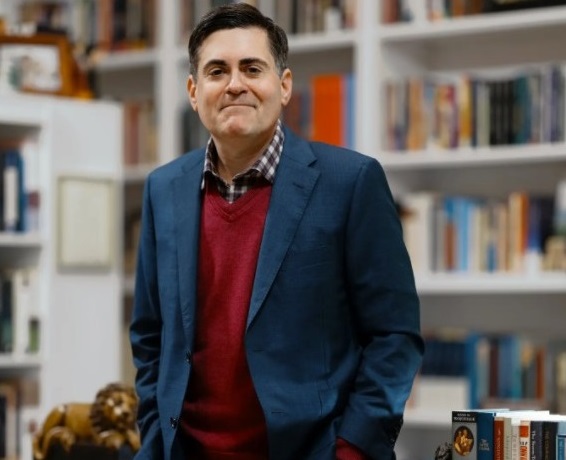NASHVILLE (TN)
New York Times [New York NY]
February 4, 2022
By David Brooks
[Photo above: Russell Moore resigned from his leadership position in the Southern Baptist Convention last spring over the denomination’s resistance to addressing the racism and sexual abuse scandals in its ranks. Brett Carlsen for The New York Times]
Think of your 12 closest friends. These are the people you vacation with, talk about your problems with, do life with in the most intimate and meaningful ways. Now imagine if six of those people suddenly took a political or public position you found utterly vile. Now imagine learning that those six people think that your position is utterly vile. You would suddenly realize that the people you thought you knew best and cared about most had actually been total strangers all along. You would feel disoriented, disturbed, unmoored. Your life would change.
This is what has happened over the past six years to millions of American Christians, especially evangelicals. There have been three big issues that have profoundly divided them: the white evangelical embrace of Donald Trump, sex abuse scandals in evangelical churches and parachurch organizations, and attitudes about race relations, especially after the killing of George Floyd.
Thabiti Anyabwile pastors the largely Black Anacostia River Church in Washington, D.C. “It’s been at times agonizing and bewildering,” he says. “My entire relationship landscape has been rearranged. I’ve lost 20-year friendships. I’ve had great distance inserted into relationships that were once close and I thought would be close for life. I’ve grieved.”
Tim Dalrymple is president of the prominent evangelical magazine Christianity Today, which called for Trump’s removal from office after his first impeachment. “As an evangelical, I’ve found the last five years to be shocking, disorienting and deeply disheartening,” he says. “One of the most surprising elements is that I’ve realized that the people who I used to stand shoulder to shoulder with on almost every issue, I now realize that we are separated by a yawning chasm of mutual incomprehension. I would never have thought that could have happened so quickly.”
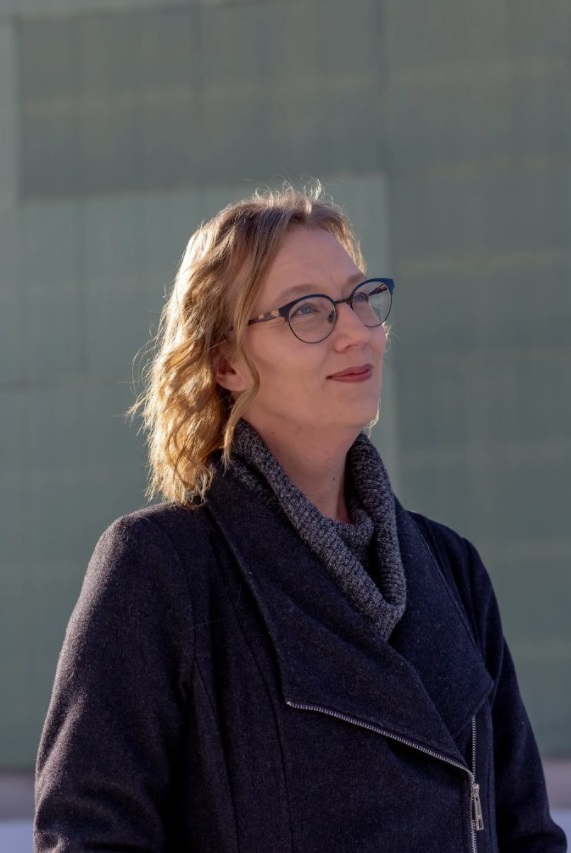
Kristin Kobes Du Mez is a professor of history at Calvin University, a Christian school in Michigan, and is the author of “Jesus and John Wayne,” about how rugged masculinity pervades the evangelical world. “I’ve had so many moms I don’t know come up to me in the playground,” she tells me, “and whisper, ‘Are you the author of that book?’ They pour out their hearts: ‘This is not my faith. This is not what I was raised to believe in.’ These are 30-something white Christian women. They are in deep crisis, questioning everything.”
Of course there is a lot of division across many parts of American society. But for evangelicals, who have dedicated their lives to Jesus, the problem is deeper. Christians are supposed to believe in the spiritual unity of the church. While differing over politics and other secondary matters, they are in theory supposed to be unified by their shared first love — as brothers and sisters in Christ. Their common devotion is supposed to bring out the fruits of the Spirit: love, joy, peace, patience, faithfulness, gentleness and self-control.
“We are one in the Spirit, we are one in the Lord,” say the opening lines of a famous Christian song commonly known as “By Our Love.” In its chorus it proclaims, “And they’ll know we are Christians by our love, by our love.” The world envisioned by that song seems very far away right now. The bitter recriminations have caused some believers to wonder if the whole religion is a crock.
Russell Moore resigned from his leadership position in the Southern Baptist Convention last spring over the denomination’s resistance to addressing the racism and sexual abuse scandals in its ranks. He tells me that every day he has conversations with Christians who are losing their faith because of what they see in their churches. He made a haunting point last summer when I saw him speak in New York State at a conference at a Bruderhof community, which has roots in the Anabaptist tradition. “We now see young evangelicals walking away from evangelicalism not because they do not believe what the church teaches,” he said, “but because they believe that the church itself does not believe what the church teaches.”
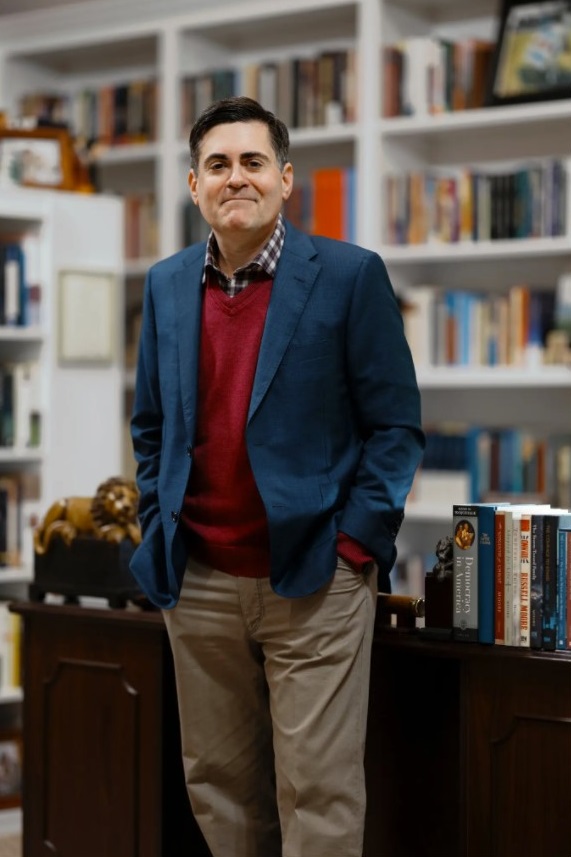
The proximate cause of all this disruption is Trump. But that is not the deepest cause. Trump is merely the embodiment of many of the raw wounds that already existed in parts of the white evangelical world: misogyny, racism, racial obliviousness, celebrity worship, resentment and the willingness to sacrifice principle for power.
Over the past decade or so, many of the country’s most celebrated Christian institutions were rocked by a series of horrific scandals. If you’re not evangelical, you may not know names like Willow Creek Community Church, Ravi Zacharias or Kanakuk Kamps. But if you’re evangelical, these are large presences on your mental landscape, and all have been destroyed or tarnished in recent years by sexual abuse allegations. The former leader of another prominent congregation, Mars Hill Church, has been accused of abuses of power.
Power is the core problem here. First, the corruptions of personal power. Evangelicalism is a populist movement. It has no hierarchy or central authority, so you might think it would have avoided the abuses of power that have afflicted the Roman Catholic Church. But the paradox of decentralization is that it has often led to the concentration of power in the hands of highly charismatic men, who can attract enthusiastic followings. A certain percentage of these macho celebrities inflict their power on the vulnerable and especially on young women. “Obedience to God was defined by obedience to the leader,” Du Mez says. “It’s been incredibly hard for people within that system to confront abuses of power.”
Then there is the way partisan politics has swamped what is supposed to be a religious movement. Over the past couple of decades evangelical pastors have found that their 20-minute Sunday sermons could not outshine the hours and hours of Fox News their parishioners were mainlining every week. It wasn’t only that the klieg light of Fox was so bright, but also that the flickering candle of Christian formation was so dim.
In 2020, roughly 40 percent of the people who called themselves evangelical attended church once a year or less, according to research by the political scientist Ryan Burge. It’s just a political label for them. This politicization is one reason people have cited to explain why so many are leaving the faith.
In 2006, 23 percent of Americans were white evangelical Protestants, according to the Public Religion Research Institute. By 2020, that share was down to 14.5 percent. In 2020, 22 percent of Americans 65 and older were white evangelical Protestants. Among adults 18 to 29, only 7 percent were.
The turmoil in evangelicalism has not just ruptured relationships; it’s dissolving the structures of many evangelical institutions. Many families, churches, parachurch organizations and even denominations are coming apart. I asked many evangelical leaders who are wary of Trump if they thought their movement would fracture. Most said it already has.
Over the past few years, the atmosphere within many Christian organizations has grown more tense and bitter. As an evangelical friend of mine noted, what used to be open fields are now minefields. If you invite such and such a speaker to your Christian college, it means you’ve surrendered to the woke brigades. If you use this word in your sermon, you’re guilty of critical race theory. Pastors across the political spectrum are exhausted — partly because of Covid but partly because every word they use is scrutinized to see if it passes this or that ideological litmus test.
Roughly 80 percent of white evangelical voters supported Trump in 2020. But it is often a minority of this group who spark bitter conflicts and want their church to be on war footing all the time.
“The healthiest people spiritually tend to be the least engaged in these struggles,” Russell Moore says. “The unhealthiest tend to be the most engaged in spiritual life and politics. It doesn’t matter what the numbers are. The people who care the most are going to set the agenda.”
World magazine is a microcosm of what’s happening. World is a Christian news organization that had been run by a team of strong journalists, like Marvin Olasky, who was its editor, and Mindy Belz, one of the bravest and best foreign correspondents in the country. It has long scrutinized the Christian world, reporting on Christian leaders who have gone astray. It editorialized that Trump was “unfit for power” after the “Access Hollywood” tape.
But the culture at World deteriorated over the past few years. Tensions mounted over its reporting on Covid protocols and race, and over disagreements about whether the 2020 election was stolen. Young reporters learned not to pitch stories that might offend Trumpist editors. Last fall, World’s board introduced an opinion section focusing on conservative commentary without fully consulting Olasky. Albert Mohler, who is president of the Southern Baptist Theological Seminary and endorsed Trump in 2020, was hired to run it. Olasky, Belz and five other journalists submitted their resignations, unwilling to see their journalism become more partisan.
Part of what’s happening amid this turmoil is that people are sorting themselves into like-minded political tribes. “If you had told me that people would switch churches because of masks, I would have been like, ‘That’s ridiculous,’” says David Bailey, whose group Arrabon does reconciliation work across a series of divides.
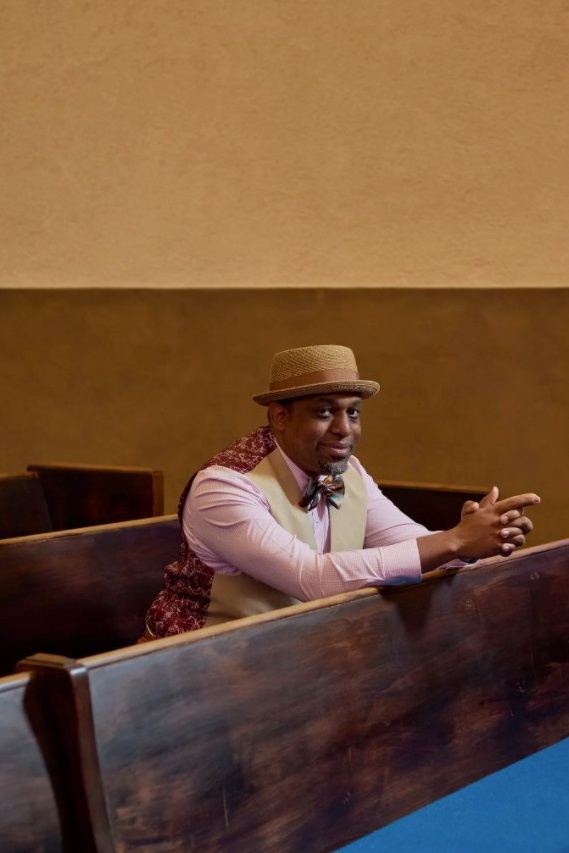
But it’s happening, and it’s not just normal bickering. What Mindy Belz notices is that there is now a common desire to pummel, shame and ostracize other Christians over disagreements. That suggests to me something more fundamental is going on than a fight over just Donald Trump.
Institutional rot has been exposed. Many old relationships have been severed. This is a profound moment of turmoil, pain, change and, while it’s too early to be sure, possible transformation.
Amid the storm, new coalitions are gradually forming, across many different kinds of Christians, among those whose eyes have been opened, who are rethinking old convictions, who are meeting and mobilizing in the hopes of renewing the evangelical presence in America. “As someone who struggled for three years with hopelessness and despair,” Anyabwile tells me, “these last couple of years have been a rekindling of hope.”
I think he’s right. Hints of Christian renewal are becoming visible.
When I was young, I had a weird obsession with people who adopted and then broke with communism around the middle of the 20th century — Arthur Koestler, Stephen Spender, Richard Wright, Andre Gide and Whittaker Chambers. Breaking ranks was brutal for many of this set; they were ostracized and condemned.
They were also liberated. They began to think new things, find new allies and sometimes embark on new causes. Some of them contributed to an anthology describing their experiences called “The God That Failed.”
I’ve watched a lot of evangelical Christians endure similar experiences. They’ve broken from the community they thought they were wed to for life. Except for them it wasn’t God that failed, but the human institutions built in his name. This experience of breaking, rethinking and reorienting a life could be the first stage in renewal.
Karen Swallow Prior is from a poor, rural family. “I’m old enough so I grew up before the culture wars,” she says. “I grew up in a family in which I could read whatever I wanted.” But then the culture wars ramped up in the 1980s and with it a pervasive warrior mentality. For a time, she joined in, protesting outside of abortion clinics and getting arrested several times, and taught at Jerry Falwell’s Liberty University. In the past she defended his son and university president over accusations of sexual impropriety. “I was one of those who was very naïve, and I guess rationalized the support of Trump by Jerry Falwell Jr. I had all kinds of generous charitable reasons for that.”
She didn’t blame evangelicals for voting for Trump in 2016, but their enthusiastic embrace of him and their ability to rationalize his sins were eye opening, she says. Then she saw how rampant the sexual scandals were. She realized that one of the reasons Jerry Falwell Jr. supported Trump was that they both had loose morals.
“I think this culture war mentality, that we’ve been developing, that I was raised in and am a product of, and I don’t reject all of it, yet, anyway, I think we are seeing the logical conclusion of so many years of a culture war mentality that polarizes us and them,” she says. Prior is still on a journey, but she has become an outspoken critic of the evangelical establishment’s toleration of abuse and an advocate of change.
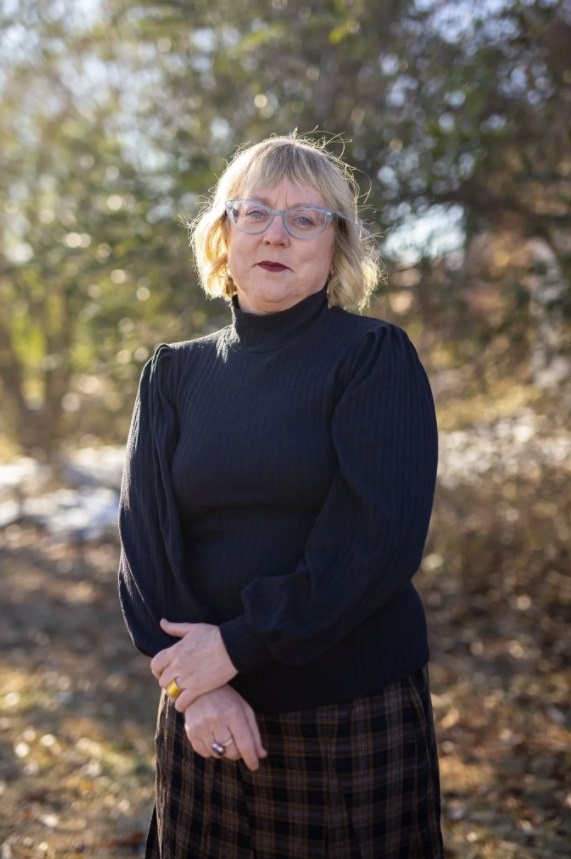
I’ve seen this same sort of journey among many of my friends who at least at one time identified as evangelicals. Over the past several years I watched fellow journalists Peter Wehner, Michael Gerson and David French earnestly and in good faith engage with Trump-backing Christians, trying to understand what was going on. Now they are courageously and passionately opposing the Trumpification of American Christianity. They’ve become leading spokesmen for reform and participants in the discussions that are now happening over what needs to be done.
French is a white evangelical who lives in Tennessee, served in Iraq and spent much of the first part of his career as a lawyer defending religious liberties. He came out early and loudly against Trump. Many assaults on him were from the alt-right. A photoshopped image floated around the internet presenting his adopted daughter, who is Black, in a gas chamber, with Donald Trump in a Nazi uniform preparing to press the button. “I’ve seen and been exposed to more hatred than I’ve ever seen at home in my entire life,” he says.
The most sobering encounters came from his fellow Christians, who shunned or confronted him at church. “It’s made me more introspective,” French says. “It’s made me think hard about my view of the world before 2015 and 2016. It’s made me understand that there are a lot of things in our country that I thought we had made more progress on, that we had not.”
If breaking ranks and rethinking is the first stage of renewal, bearing witness is the next. There are now many, many people who refused to be silent about abuses of power. When Rachael Denhollander, who was the first to publicly accuse the U.S.A. Gymnastics team doctor Larry Nassar of abuse, raised concerns with church leaders over allegations of sexual abuse and cover-ups in another church network, she got no support. She has emerged as a leading advocate for survivors of sexual abuse in churches and Christian organizations.
To narrow things down, let me just mention a few witnesses whose last name is Moore, but they are not related. When he was 19, Russell Moore had a dream of running the policy arm of the Southern Baptist Convention. “I was thinking this would fit everything I think God has called me to do,” Moore says. He realized his dream and loved the job.
But he felt compelled to call out his church’s lamentable record on race, to publicly criticize Trump and to denounce the cover-up of the sexual abuse scandals. He stood up privately and publicly, got viciously attacked by white supremacists and others, and eventually resigned from his job.
Beth Moore is one of the most prominent Bible teachers in the evangelical world. She was stunned when her fellow Southern Baptists did not reject Trump after the “Access Hollywood” tape, and she became more vocal in denouncing Christian nationalism and misogyny before breaking with the Southern Baptist Convention last year. “There comes a time when you have to say, this is not who I am,” she told the Religion News Service.
Lecrae Moore is a Black Christian hip-hop artist. “Four or five years ago, I began to speak very publicly about racial injustice,” he told The Washington Post in 2020. “And I was met with silence or discord by white evangelicals. A lot of my shows were canceled, and people just refused to support me. I was kind of flabbergasted.”
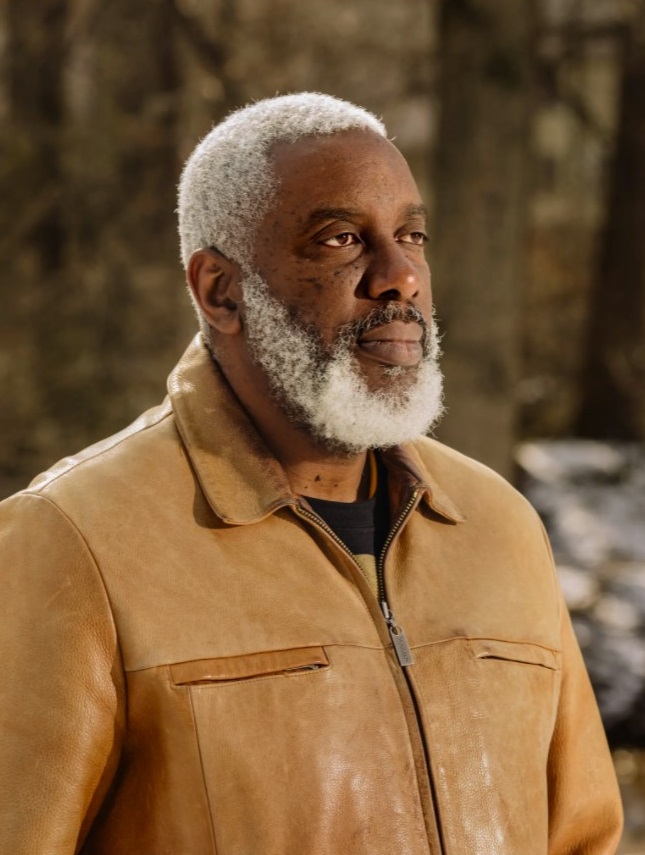
The next stage in the renewal is what you might call the social reorganization of American Christianity. Denominational differences are becoming less important. People who used to be in different silos have been prompted by the turmoil to find one another and seek common cause. “One of the sweetest blessings is that I now count persons like Beth Moore as a friend,” Anyabwile says. “Prior to six years ago we would have been in different circles.” These kinds of new connections constitute an important form of social capital that may turn out to be very powerful in the years ahead.
Many of these dissenters have put racial justice and reconciliation activities at the center of what needs to be done. There are reconciliation conferences, trips to Selma and Birmingham, Ala., study groups reading Martin Luther King Jr. and Howard Thurman. Evangelicals played important roles in the abolitionist movement; these Christians are trying to connect with that legacy.
Eugene Rivers is a prominent Black Pentecostal who has been working to bring white and Black Pentecostals together. This would seem like an unlikely undertaking because white Pentecostals are often among the most conservative of the lot. But Rivers says their meetings have been compelling. For example, Rivers helped organize a prayer vigil for the nation in Washington on Jan. 6 of this year and working-class white Pentecostals came. “They’re on the floor crying,” Rivers says. “There is no artifice with them. These guys are the most amazing, loving people.”
Rivers says the churches are the key to racial reconciliation and racial justice. He observes, “You cannot have a rational discussion of evil outside of agape love” — the kind of self-surrendering love for others that is supposed to be at the heart of the Christian life. “Without love, the accused are defensive because they feel guilty, because they are, and the accuser only ends up alienating the people who he is reaching out to.”
David Bailey has been doing racial and other reconciliation work with church and other groups since 2008. He says that 70 percent of evangelicals are open to this work, but that the 15 percent on either end are less so. “The extremes are getting more entrenched, but I don’t think they’re growing,” he observes, before continuing: “We remind people that peacemaking and healing are core to the Christian identity. There is no way to do spiritual formation unless you practice healing and reconciliation.”
He says race is not always the most intractable difference. His church in Richmond, Va., is “racially diverse and socioeconomically diverse, and it’s the economic differences that are the hardest to heal,” he says.
One source of division could be a force for renewal: generational differences. Christians who are millennial and younger have different views on things like L.G.B.T.Q. issues and are just used to mixing with much more diverse demographics.
Mark Labberton is the president of Fuller Theological Seminary, which engages with students from 110 denominations and 90 nations. He says the average student at Fuller is about 31. Many Fuller students, Labberton says, believe in the central creed of Christianity, but not the institutional shroud it has come wrapped in. That is to say, they love Jesus, but they have had it with many of the institutions their elders have built in his name.
The future of the Christian church is not going to look like the past. Today many of the most dynamic sectors of the faith are in immigrant communities — in Korean, African and Hispanic churches, for example. In the decades ahead the American church is going to look more like the global church.
At the Fuller seminary that future is already here. That changes a lot. For example, after ISIS launched a series of deadly attacks against Egyptian Christians, some Americans at Fuller wanted to hold a memorial service. The Egyptian students said, in effect: “What are you talking about? This is a cause for a celebration. This is about acknowledging what it means to live as a Christian in a context in which you have the privilege of martyrdom.” That idea is foreign to most American Christians, but the Egyptians led a celebratory service, which was followed by communion in the form of a Japanese tea ceremony. This is not your grandfather’s evangelicalism.
There can probably be no evangelical renewal if the movement does not divorce itself from the lust for partisan political power. Over more than a century, Catholics have established a doctrine of social teaching that helps them understand how the church can be active in civic life without being corrupted by partisan politics. Protestants do not have this kind of doctrine.
Those who are leading the evangelical renewal know they need one.
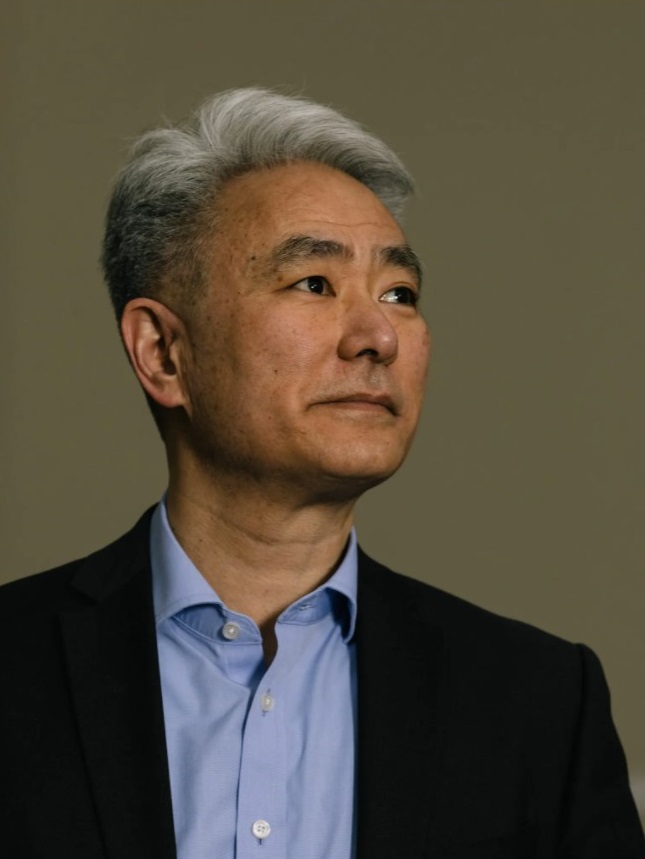
In 2019 the board of the National Association of Evangelicals, which represents 40 evangelical denominations, had the bright idea of hiring Walter Kim to be its next leader. Kim grew up in the Korean American church. His organization spans the ideological chasms but has miraculously and through hard work been able to stay together. I ask him to describe his priorities as head of the N.A.E.
His first priority is “grappling with the issue of racial justice and reconciliation.” His next priority is “public discipleship.” “Evangelical churches know how to do premarital counseling and how to do marital counseling,” he explains. “I’d love to see similar programs for the church’s ability to equip people in their public and civic engagement.” It would certainly be a vast improvement if evangelicals were better equipped to separate truth from propaganda, if they had more refined criteria for what a responsible leader looks like, if they had better training for how to be involved in their communities.
These two priorities are related. “We have a lot of things to learn from the Black church,” Kim adds. “They understood their church couldn’t just address personal transformation but also their place in society.”
Many of the Protestants who have been most active in promoting social repair are often young African Americans, like Justin Giboney and the AND Campaign. As Thabiti Anyabwile puts it: “I think a lot of people are discovering that the Bible holds together things they were taught were enemies. You can be a faithful Christian and also believe in justice.” It’s important for outsiders to not impose secular left/right categories here. It’s too simplistic to say these people are moving left. They are quite conservative on many things. But they more readily incorporate justice work into the lifelong process of Christian formation — the renovation of the heart that is at the center of the Christian life, the daily effort to grow in grace and lead a more Christ-like life.
Over the past few years, I’ve joined and observed a few of the conferences and gatherings organized by Christians who are trying to figure out how to start this renewal. Inevitably there were a few sessions diagnosing the problems, then a final one in which people were supposed to suggest solutions. I would summarize the final sessions this way: “Mumble, mumble, mumble. Well, it was nice to see y’all!”
But lately a much clearer understanding of what needs to happen is emerging. The most detailed agenda I’ve seen has been produced by Tim Keller, the founding pastor of Redeemer Presbyterian Church in New York City. Tim is a friend of mine, but a lot of other people would agree that he has one of the most impressive and important minds in the evangelical world. Tim laid out for me an ambitious agenda to renew this community. I’ll just give you the bullet points:
- The Christian Mind Project. Expand by a factor of 10 the number of evangelicals in graduate schools and the professoriate in order to make the community more intellectually robust.
- A renewed church planting effort. Old churches merely attract pre-existing Christians. New churches attract new believers. Keller says Christians need to plant 6,000 new churches a year. He has already had a ton of success on this front.
- New campus ministries. Decades ago, many young people found faith via dynamic evangelical organizations for students, such as InterVarsity and Young Life. That field has been allowed to stagnate.
- Protestant social teaching. Catholics have a public theology that dates back at least to Pope Leo XIII’s encyclical Rerum Novarum. Protestant versions might share 75 percent of its ideas, while being perhaps less hierarchical and more individualistic.
- Faith and work. Faith is not just for Sundays. Keller suggests there should be more education programs on how Christians should show up at work and in the world.
- Racial justice. Keller argues that this is one of the most explosive divides between the Trumpian and the non-Trumpian wings of the movement.
- A strategy for post-Christian world — how you evangelize among people who have never had any contact with faith and don’t share the same mental concepts.
- Spiritual formation. As Keller puts it: “We need to really redo Christian education. Completely.”
That’s a concrete and ambitious strategy for change. Is it too late to put it into action? Quite possibly. The evangelical community might have so spoiled its own appeal that many members of younger generations will continue to reject it.
But evangelicalism has survived division before. It has historically had a Christian nationalist current and also a more justice-oriented current, which was powerful as recently as the 1970s. Both of these currents ebb and flow over the decades.
And young believers are a powerful force. Mark Labberton says that many of the seminarians at Fuller are moving away from church as we normally conceive it. They want to build communities that are smaller, intimate, authentic, which can often fit in a living room. They see faith as inseparably linked to community service with the poor and marginalized. There’s a general interest in getting away from all the bitterness that has devoured the elders and just diving back into the Bible.
Finally, Karen Swallow Prior said something that rings in my ears: “Modernity has peaked.” The age of the autonomous individual, the age of the narcissistic self, the age of consumerism and moral drift has left us with bitterness and division, a surging mental health crisis and people just being nasty to one another. Millions are looking for something else, some system of belief that is communal, that gives life transcendent meaning.
Christianity is a potential answer for that search, and therein lies its hope, and the great possibility of renewing its call.
David Brooks has been a columnist with The Times since 2003. He is the author of “The Road to Character” and, most recently, “The Second Mountain.” @nytdavidbrooks

